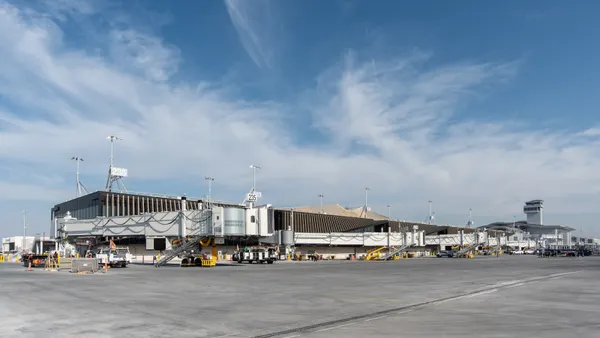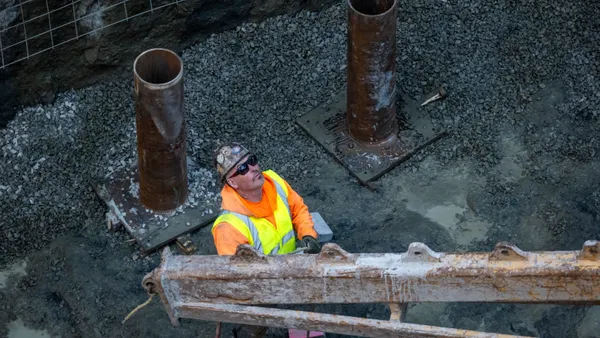Dive Brief:
- The Caisse de depot, Canada’s second-largest public pension fund, said the U.S. could benefit from the same kind of infrastructure bank that Canada has created, according to Reuters.
- The Caisse, which is one of the world’s biggest investors in infrastructure, said an infrastructure bank could help the U.S. address several of its issues, such as how to best utilize public-private partnerships, create policy consistency and get more large jobs underway.
- U.S. infrastructure projects are not as attractive to large institutional investors as they could be because they are not currently set up to take advantage of private capital, according to Reuters.
Dive Insight:
The Canadian government previously announced that its infrastructure bank would start off with a $35 billion government investment. It has also created the Invest in Canada Hub to attract more foreign investment and will potentially lift some restrictions on those investments in the future. Last month, Canadian Prime Minister Justin Trudeau made an appeal for billions of dollars in infrastructure investments at a financial summit in Toronto.
The Caisse recently took on the construction of a $5.5 billion light-rail system in Quebec. The fund is investing $3 billion and will operate the rail system when the projects is complete. The Caisse is looking to the Canadian government to kick in $2.5 billion, even though the Quebec Pension Plan will reap the profits.
Canada has consistently set an example for infrastructure planning and funding, and it even scored a mention in Brendan Bechtel's November USA Today op-ed piece. In the editorial, Bechtel touted the importance of public-private partnerships in tackling America's infrastructure problems and pointed to Canada's Infrastructure Ontario as an example of how to model them.
President-elect Donald Trump’s infrastructure plans, though light on details thus far, have centered around a $1 trillion proposal that his advisers put forth just before the election. The strategy would see the private sector invest in the construction of fee-based infrastructure projects in return for an 82% tax credit and the right to collect whatever tolls or user fees the asset generates for a specified period of time.
During the presidential campaign, Trump staffers had criticized opponent Hillary Clinton's suggestions that the U.S. establish an infrastructure bank, but Steven Mnuchin, former Goldman Sachs executive and nominee for Secretary of the U.S. Treasury, recently said the Trump team is considering a similar move.
Upgrading the country’s infrastructure has proven to be an issue with bipartisan support, although Democrats have expressed concern with Trump's proposal. Sen. Charles Schumer (D-NY) said it’s possible that Congress could pass infrastructure legislation within 100 days of Trump taking office but that the "gimmick" of tax breaks in return for private investment was a nonstarter. Instead, said Schumer, corporate tax reforms could provide direct funding.













